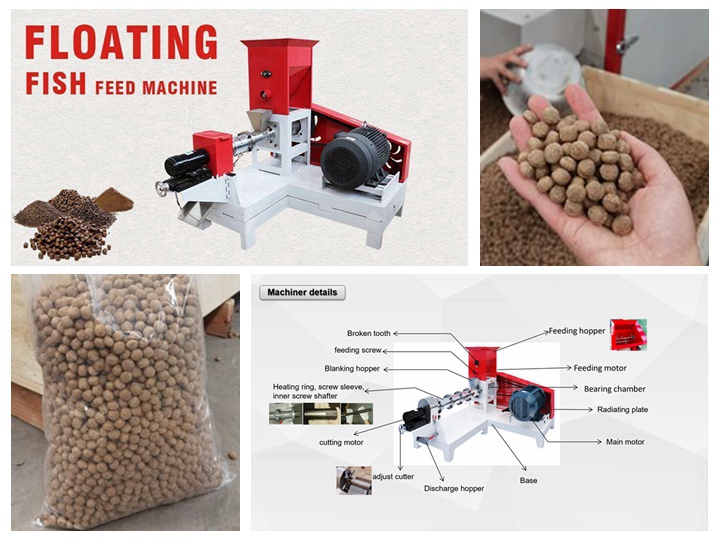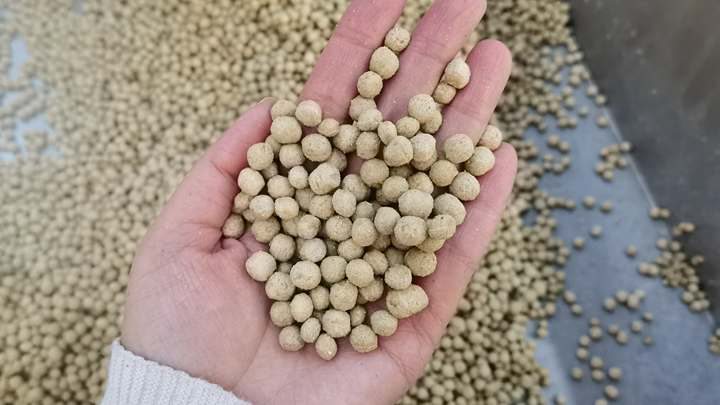.jpg)
Dec 15, 2007 · In China, Farming Fish in Toxic Waters. A fish farmer brought oysters to buyers in Yuxi, a town in Fuqing County, Fujian. Chang W. Lee/The New York Times. By David Barboza. Dec. 15, 2007. FUQING
.jpg)
Jan 1, 2016 · In China, feeds for marine fish include those for the yellow croaker, cobia, Asian seabass, seabream, red drum, flounder, and groupers. As the industry consolidates, the rate of growth is slowing. Success depends on volume production but this can be limited as the industry is intertwined with changes in the production chain and threats of diseases.
.jpg)
Sep 4, 2021 · The total investment of this aqua fish feed manufacturing project is 150 million yuan, of which environmental protection investment is 8.4 million yuan, accounting for 5.6% of the total investment. 6 newly-built aquatic feed production lines, including 2 crab and shrimp feed plant lines, 2 fish feed production lines and extruded fish feed

Resources and power China is well endowed with mineral resources, and more than three dozen minerals have proven economically important reserves. The country has rich overall energy potential, but most of it remains to be developed.
.jpg)
Mar 1, 2021 · In this paper, the development of fisheries in China is reviewed, including the development history of fisheries, the current situations of the aquatic seed industry, aquaculture industry, capture industry, aquatic product processing industry, aquatic animal nutrition and feed industry, and leisure fishery; additionally, the contribution of
.jpg)
Dec 21, 2006 · 21-12-2006 | Feed processing | News. HQ Sustainable Maritime Industries, Inc., producer of toxin-free integrated aquaculture and aquatic product processing, started the construction of an organic feed mill and processing plant in Hainan, China. The feed mill, which is the first.
.jpg)
the world’s largest processing site, due to plant closures on the mainland, Puerto Rico and more recently, American Samoa, it has dropped to sixth place (132,000 mt). Table 4.2 Top Ten Canned Tuna Processing Countries, 2008 Rank Production site Annual production (mt) a % Global annual production a Whole round fish equivalent
.jpg)
Apr 13, 2021 · Mark Godfrey April 13, 2021 Chinese processing factories are suffering “a lot” from rising costs related to heightened inspections and delays on seafood being shipped into China, according to a supplier of processing equipment to the industry.
.jpg)
Mar 23, 2021 · In 2017, China cancelled $14m (£10m) in Gambian debt and invested $33m (£23.8m) to develop agriculture and fisheries, including Golden Lead and two other fish-processing plants along the 50-mile
.jpg)
Animal Feed Processing Plant. Product name: animal feed processing plant/animal feed equipments. Capacity: 1-20tph /customized per client's requirements. Application: all kinds of animals such as chicken, cattle, sheep, pig, fish, shrimp feed processing industrial. Product type: poultry feed mill plant/feed pellet machine.

Jul 5, 2023 · Seafood production volume in China 1985-2021, by fishing and aquaculture. Fish and seafood production volume in China from 1985 to 2021, by fishing and aquaculture (in million metric tons)
.jpg)
The purpose of raising animals on an integrated fish farm is to develop integration and fully utilize limited feedstuffs. The multi-stage utilization of feed stuffs and fertilizers makes it possible to supply the community with more produce and earn for the fish farm more revenue. Animal raising in China is practiced in line with local
.jpg)
China Fish Food Processing Plant manufacturers - Select 2023 high quality Fish Food Processing Plant products in best price from certified Chinese Food Processing Plant, Fish Food Machine suppliers, wholesalers and factory on Made-in-China.com
.jpg)
EU imports of fish fillets from China, 2010 56 Figure 5.5: Fish Processing Plants in China 57 Figure 6.1: Breakdown of seafood consumption in China, 1990-2005 60 Figure AI.1: Distribution of annual catch (in tonnes) by the 5 gear/vessel types common in Chinese distant-water fisheries 83
.jpg)
Sep 15, 2021 · China has emerged as a major processing and trade hub in circuitous global seafood supply chains, where much of the world’s fish catch is now imported and processed for re-export — particularly to the EU, Japan and the United States. This offers many benefits.